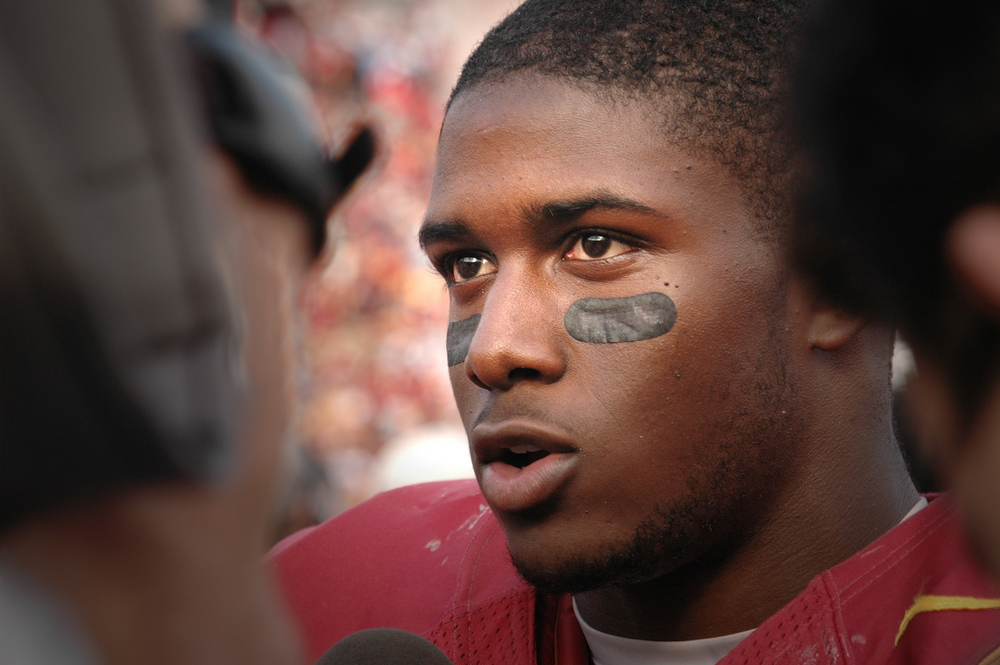It is difficult to compare eras anecdotally, although baseball has enough advanced statistics to try. Yet the easiest way for an 8-year-old to first become mesmerized with the game is to count. That is why Mark McGwire’s passing Sammy Sosa’s home run record of 66 with 70 in 1998 has been immortalized as the summer that saved baseball. That’s why Babe Ruth’s 714 total home runs was an iconic number for generations.
And that’s why Hank Aaron’s 755 became iconic to a few generations more. And although Barry Bonds’ 762 doesn’t have quite the same luster (there will forever be an asterisk, as will McGwire and Sosa), it became clear that none of his peers would challenge that mark as the league came out of the steroid era.
Yet there is one number we don’t use in the conversation, and its shadow looms large when discussing who is the real Home Run King. How many home runs did Josh Gibson hit?
Gibson might be the greatest power hitter of all time.
Just about every single ode, tribute or memorial written about him makes some mention of that. His baseball Hall of Fame plaque refers to him hitting “almost 800 home runs” across the various leagues he played in. None of them recognized in the lineage of Major League Baseball today, with the Yankees and Red Sox and the history of the organization.
Some journalists, such as Jason Lewis of the Los Angeles Sentinel in 2013, have cited that he hit more than 1,000 home runs throughout his career. He was Oral mythology has Babe Ruth with the nickname “The White Josh Gibson.”
Baseball Reference, typically one of the best sources on the internet for historical documenting of anything, let alone sports, is only able to credit Gibson with a measly 113 balls over the fence across 17 seasons of baseball in Negro Leagues and Foreign Leagues combined. Different entities have tried to cull together a better number, taking into account games against minor league and semi-pro teams, even trying to document his successes in limited opportunity against his white, major league contemporaries.
Even without the right number, Gibson’s impact was undeniable. His rise to fame is one of the best stories you might not believe if it wasn’t included in his Hall of Fame profile. As a member of a semi-pro team in Pittsburgh, he was in the stands of a Homestead Gray’s game when the catcher got injured and the team pulled him out of his seat to take his place. From that humble beginning he never looked back, dominating long enough that he became the second player from the Negro Leagues elected to the Hall of Fame after Satchel Paige (who, fittingly, also happened to be the only player in the league paid more than Gibson).
Folk tales have been passed down of the home runs he has hit, including a 580-foot moonshot at Yankee Stadium that has more or less been confirmed into the official record.
Sadly, Gibson was diagnosed with a brain tumor in 1943. He played four more years through 1946 despite refusing surgery. Even towards the end of his career, he was thought of highly enough that his peers may have placed a wager that he would be the one to finally break the color barrier. He didn’t live long enough to see it happen. Gibson died in January 1947, months before Jackie Robinson first took the field for the Brooklyn Dodgers.
Gibson may not be at the forefront of people’s minds on a daily basis, or even while they are watching a baseball game. Yet, maybe on a particularly long home run, an announcer might find his name for a reference point, or if somebody breaks Bonds’ mark we will hear “What about Gibson’s 800?” in a press conference.
Originally posted 2018-10-07 08:00:47.








